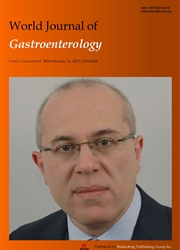

 中文摘要:
中文摘要:
目的分析Ⅳa期非小细胞肺癌(NSCLC)的临床特征,探讨其临床诊治的特点及预后因素。方法分析2009年10月至2013年12月收治的首次诊断为Ⅳa期NSCLC患者301例,随访至2014年11月30日,分析其临床特征及诊治情况。主要观察指标为发生率、有效率、无进展生存期(PFS)和总生存期(OS)。结果Ⅳa期NSCLC的患者中位PFS为3.3个月(95%CI:2.808-3.792),中位OS为7.8个月(95%CI:6.700-8.900)。多变量Cox回归分析表明,体能状态(PS)评分、胸腔积液是否可控、能否接受4周期及以上化疗是影响疾病进展以及总生存的独立因素,酪氨酸激酶抑制剂(TKI)治疗亦是总生存的独立预后因素。结论Ⅳa期NSCLC中位OS是7.8个月。对于表皮生长因子受体(EGFR)突变患者,应用TKI治疗;对于体能状态好的患者,积极控制胸腔积液和全身化疗有利于提高Ⅳa期NSCLC患者的生存期。
 英文摘要:
英文摘要:
Objective To analyze the clinical features,characteristics of diagnosis and treatment,and prognostic factors of stageⅣa non-small cell lung cancer(NSCLC).Methods 301 patients with initially diagnosed stageⅣa NSCLC in our hospital from October 2009 to December 2013 were analyzed on the clinical characteristics,diagnosis and treatment situation,including the main observation indicators of occurrence rate,effective rate,progression free survival(PFS)and overall survival(OS).Results The median PFS of stageⅣa NSCLC was 3.3months(95%CI:2.808-3.792)and the median OS was 7.8months(95%CI:6.700-8.900).The multivariable Cox regression analysis showed that the performance status(PS)score,whether pleural effusion(PE)controllable,whether accepting 4weeks or more chemotherapy were the independent factors affecting the disease progress and OS,the tyrosine kinase inhibitor(TKI)therapy also was an independent prognostic factor of OS.Conclusion The median OS of stageⅣa is7.8months.For patients carrying EGFR gene mutation,using the TKI treatment is beneficial.For patients with good PS,controlling PE and systemic chemotherapy are beneficial for improving OS.
 同期刊论文项目
同期刊论文项目
 同项目期刊论文
同项目期刊论文
 The catalytic subunit of DNA-dependent protein kinase is required for cellular resistance to oxidati
The catalytic subunit of DNA-dependent protein kinase is required for cellular resistance to oxidati The catalyticsubunit of DNA-dependent protein kinaseis required for cellular resistance to oxidative
The catalyticsubunit of DNA-dependent protein kinaseis required for cellular resistance to oxidative DNA-PKcs phosphorylates hnRNP-A1 to facilitate the RPA-to-POT1 switch and telomere capping after rep
DNA-PKcs phosphorylates hnRNP-A1 to facilitate the RPA-to-POT1 switch and telomere capping after rep Alteration of the microRNA expression profile in human osteosarcoma cells transfected with APE1 siRN
Alteration of the microRNA expression profile in human osteosarcoma cells transfected with APE1 siRN 期刊信息
期刊信息
